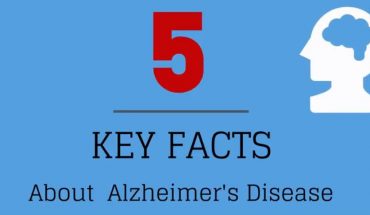Demos publishes new report in collaboration with The Physiological Society and the Centre for Ageing Better, Understanding ‘Early Exiters’, which explores the exodus of older workers leaving work early due to health conditions.
Understanding ‘Early Exiters’ calls for an Ageing Workforce Strategy: a cross-government approach, including tax incentives to improve access to occupational health, better integration of health and employment support, and more physiological research to weaken the link between ill health and older age.
New polling for the report finds that, among over 50s whose work has been impacted by their health, 24% took early retirement as a result, and 19% reduced their working hours.
The vast majority of ‘Early Exiters’ Demos spoke to said they had left work against their own wishes, with some saying the decision had been “taken out of [their] hands”
Compared to before the pandemic, there are over 100,000 more people aged 50-64 who say they are not in work because of a long-term health condition. (ONS figures) The UK is the only high-income country which has seen a sustained rise in economic inactivity among this age group since the start of the pandemic.
ONS survey data reveals that only 1% of ‘Early Exiters’ give Long Covid as a reason for not returning to work. This compares to 12% who give disability as a reason, and 10% who give illness as a reason.
An Ageing Workforce Strategy is needed to prevent ‘Early Exiters’ leaving the workforce before retirement and to help tackle growing UK labour shortages, argues a new report published by cross-party think tank Demos in partnership with The Physiological Society and the Centre for Ageing Better.
According to Demos’s focus groups, participants aged between 50-64 who had health conditions said they had retired and left work not out of choice, but because they felt powerless and under supported in the situation they were in. This was reflected in ONS statistics, which found that of those aged 50-65 who left work since the pandemic and have not returned, just 14% accessed occupational health services before leaving their previous job.
Some said the decision had been “taken out of [their] hands”, with one participant saying, “My decision to leave work was devastating… I was resentful about having to leave, but felt I had no other option.”
Recommendations for the Ageing Workforce Strategy include:
Access to occupational health services should be improved by removing the cost barriers for small and medium sized enterprises through reduced employer National Insurance Contributions for organisations that provide access to such support.
Government and agencies should work together to provide integrated health and employment support to older people rooted in medical and physiological evidence.
The UK should invest more in physiological research to weaken the link between ill health and older age, establishing a centre to coordinate UK and international research on healthy ageing.
Andrew Phillips, Researcher at Demos and author of Understanding ‘Early Exiters’, said,
“Many Early Exiters aren’t taking early retirement for lifestyle purposes. The reality is that a range of physical and mental health conditions are causing older people to leave work and not return, leading to record numbers of vacancies even as unemployment remains low.
“For a government that is focused on economic growth, this should be enormously concerning. An Ageing Workforce Strategy would help reduce the number of older people with health conditions who may be forced to leave work early, while supporting those who have left to return. It would also strengthen the government’s ability to respond to long-term demographic changes by reducing the link between ageing and ill health.
“The government must not forget the lesson which the pandemic taught us, that people’s health and economic prosperity are closely interlinked.”
Tom Addison, Policy Manager at The Physiological Society said,
“As well as the boost to the economy from supporting older people to stay healthy at work, there is a strong evidence base showing that work is generally good for physical and mental health and well-being.
“Research by physiologists into areas such as physical activity and cardiovascular disease underpins our understanding of how we can support people to stay healthy as they age.
“This research will help older people to stay happy, healthy and productive at work. In turn, good work helps the UK economy tap into an undervalued part of the labour market in a way that boosts output and reduces pressures on the NHS.”
Dr Carole Easton, Chief Executive at the Centre for Ageing Better, said,
“It is clear that the current crisis of older workers leaving the labour market will not resolve itself and needs greater proactive solutions. We need a more strategic ageing workforce approach, led by a newly created Older People’s Commissioner for England, to support older workers now and to better prepare for significant demographic changes in our ageing society. Older workers can play a key role in growing our economy but as this report indicates, at the moment too many are leaving the workforce before they want to and when they still have so much to offer.”
- New lipid-based pathway discovered as key to memory formation - 25th June 2025
- Crucial link could explain how Alzheimer’s takes hold - 25th June 2025
- Understanding Your Mind Can Improve Daily Life - 25th June 2025







